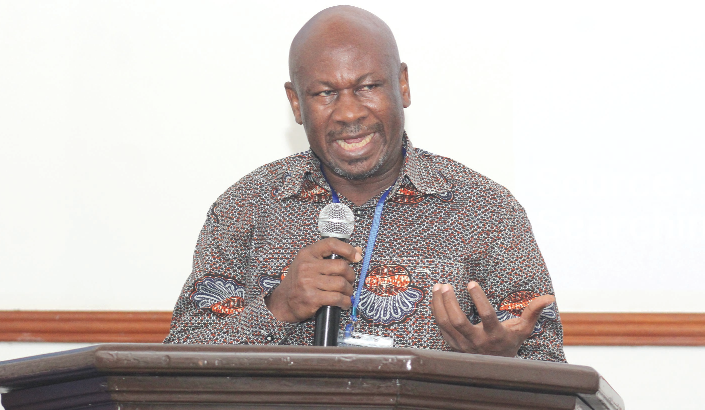
Star-Ghana supports 24 bodies with GH¢6m to promote local governance
Star-Ghana, a multi-donor funded programme, is supporting 24 organisations across the country with GH¢6 million to develop and implement projects to enhance the effectiveness of decentralisation and improve citizens’ access to public goods and services.
The beneficiary institutions include Parliament and civil society organisations (CSOs) such as the Local Government Network, Abantu for Development, disabled organisations, the Centre for Democratic Development (CDD) and the Ghana Journalists Association (GJA).
Advertisement
The 10-year project is being spearheaded by Star-Ghana, with support from Danida, the European Union (EU) and the DFID.
Agreement
An agreement to this effect was signed by the Programme Director of Star-Ghana, Mr Ibrahim Tanko Amidu, and representatives of the beneficiary institutions at a two-day orientation workshop for CSOs in Accra yesterday.
The ceremony, Mr Tanko said the local governance call was meant to support citizens’ actions at the community, district and national levels in order to improve governance and improve the quality of services that citizens were able to access.
“We want to strengthen local governance; we want to ensure that all citizens are able to participate effectively in governance and we also want to ensure that the quality of services at the local level is improved and accessible to all citizens,” he stated.
Presentation
In a presentation on the topic: “Emerging issues on local governance and decentralisation”, the Chairman of the Steering Committee of Star-Ghana, Dr Esther Ofei-Aboagye, traced the history of Ghana’s decentralisation system, which she said had evolved from 110 metropolitan, municipal and districts assemblies (MMDAs) to 254 since 1988.
She said the pace of change expected at the local level continued to be hampered by vested personal interests which continued to affect the assertiveness of the assemblies.

A section of the audience
She, therefore, charged MMDAs to position themselves well to fully optimise the benefits of technology to enhance their programmes.
On the role of citizens, she said after 30 years of decentralisation, “citizens still lack the knowledge to demand from the local authorities, while many people do not have any idea about where to go to at the grass-root level for their issues to be addressed”.
Dr Ofei-Aboagye called on the authorities to revise the mechanism of funding for the assemblies, including the District Assemblies Common Fund (DACF), among other sources of funding, saying “the MMDAs need long-term financing and not short term”.
That, she explained, was because many assemblies could not finance development projects with internally generated funds.
“The assemblies, for instance, do not even know how the private/public partnership (PPP) works because it has not been local government friendly. They also lack the capacity to know how the PPP even works,” she said, and urged CSOs to begin to express interest in whether the reform in local governance had made any significant impact.
Dr Ofei-Aboagye further expressed concern about why social protection issues such as the LEAP continued to be outside the domain of the assemblies and called for a retooling of the Social Welfare Department to have a broader social agenda.




